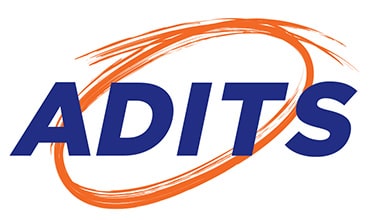Artificial intelligence (AI) has brought much excitement for many, but it has also been a concern for some. Myths about AI persist and one of the most common is that AI in business will take away jobs from humans.
This AI myth is far from the truth. In reality, AI helps us in our day-to-day activities, making work easier and allowing us to focus on higher-value tasks. Find out in this article how AI can be your powerful ally in the workplace.
How AI Tools Assist Us Today
In recent years, AI has made strides in helping people and businesses in many ways, and below are some examples.
Chatbots for Customer Service
Aside from providing instant responses to customer queries, AI-powered chatbots are also now used for processing orders, scheduling appointments, and guiding customers in basic troubleshooting.
Data Analysis Tools
Because of their ability to make sense of vast amounts of data, AI-powered data analysis tools make it easier to uncover patterns and insights.
Automation Software
AI-powered automation software streamlines repetitive tasks, such as scheduling, invoicing, and inventory management. This increases efficiency and reduces the likelihood of error in business processes.
If you’re curious to discover more AI opportunities for your business, check out our article 10 Key Opportunities & Implications Of AI for Your Business.
How AI in Business Enhances Human Capabilities
The truth is that AI augments human capabilities, debunking the top AI myth. Here are some ways AI enhances the potential of employees:
Increased Efficiency
Because AI can handle repetitive and time-consuming tasks, employees can focus on more strategic and creative aspects of their work. Think of it as having a highly skilled assistant who takes care of your mundane tasks.
Improved Accuracy
AI systems can process large volumes of data with high accuracy. Researchers are even developing new techniques to improve accuracy in AI. In healthcare, for example, AI-powered diagnostic tools can analyse medical images and detect anomalies with great precision. They help doctors in providing earlier and more accurate diagnoses.
Enhanced Creativity
“Generative AI has the potential to democratise access to creative tools and empower people to express themselves in new and exciting ways,” noted Sam Altman of OpenAI.
In marketing, AI-driven tools help to analyse consumer behaviour and generate personalised content. This helps marketers craft more effective campaigns.
AI can also assist in creative fields like music and art by providing new perspectives and ideas.
Data-Driven Decision-Making
Imagine having seasoned super advisor who can sift through vast amounts of information and highlight the most critical points. That’s what AI can do to help you make better decisions, providing data-driven insights and recommendations.
For instance, AI-powered financial analysis tools can help analyse market trends and predict future performance. You would no longer need to go through voluminous reports and data. AI can help you quickly scan large datasets, gather insights, and track sources with unmatched precision and speed.
Preparing for an AI-Powered Future
To fully harness the potential of AI, organisations need to prepare for an AI-powered future. Here are some key steps:
Upskilling and Reskilling
The demand for new skills is expected to rise as AI takes over routine tasks. A recent report by the World Economic Forum says 58% of employees believe their job skills will change significantly in the next five years due to AI and big data.
Businesses should now be investing in preparing a future-ready workforce. They must train them in working alongside AI tools and making decisions based on data.
“AI represents a never-before-seen opportunity for technology to benefit humankind in every way, and we have to act intentionally to make sure populations don’t get left behind,” according to Francine Katsoudas, founding member of the AI-Enabled ICT Workforce Consortium and Cisco’s Chief People, Policy & Purpose Officer.
Ethical Considerations
Implementing AI responsibly is crucial, so organisations must establish clear guidelines and ethical standards to ensure AI is used in ways that benefit everyone. Businesses must understand the ethical implications of AI, such as data privacy, bias, and transparency.
- Data privacy must be prioritised to protect user data and maintain trust.
- Biases must be addressed to prevent AI algorithms from inadvertently perpetuating prejudices.
- Transparency (such as in how AI makes decisions) can ensure fairness, helping build trust and accountability.
(For more information about responsible AI use, we suggest reading this article: A Deep Dive into Australia’s AI Ethics Principles.)
Data Governance
Data governance helps to ensure reliable AI outcomes, by using accurate, consistent, and secure AI systems. Implementing strong data governance practices can prevent issues (like data breaches and biases), enabling AI to work effectively alongside humans and enhancing collaboration and trust in AI-driven processes.
Our webinar on AI and Data Governance offers an excellent opportunity for leaders of small to medium-sized businesses to harness the power of AI while ensuring data privacy and governance. Watch Beyond the Buzz: Considerations for AI in Business now!
Effective AI Empowers Humans to Excel
When implemented effectively, AI can greatly improve the way humans work and provide opportunities rather than take their jobs away. With the right preparation, businesses can ease the transition and fully benefit from embracing AI.
Kick-start your AI journey with our eBook Step into AI: Your Playbook for Secure and Compliant Integration. It covers everything you need to know, from the tools available nowadays and the AI-powered cyber security threats, to the AI ethics principles and a step-by-step implementation guide. Download now!



